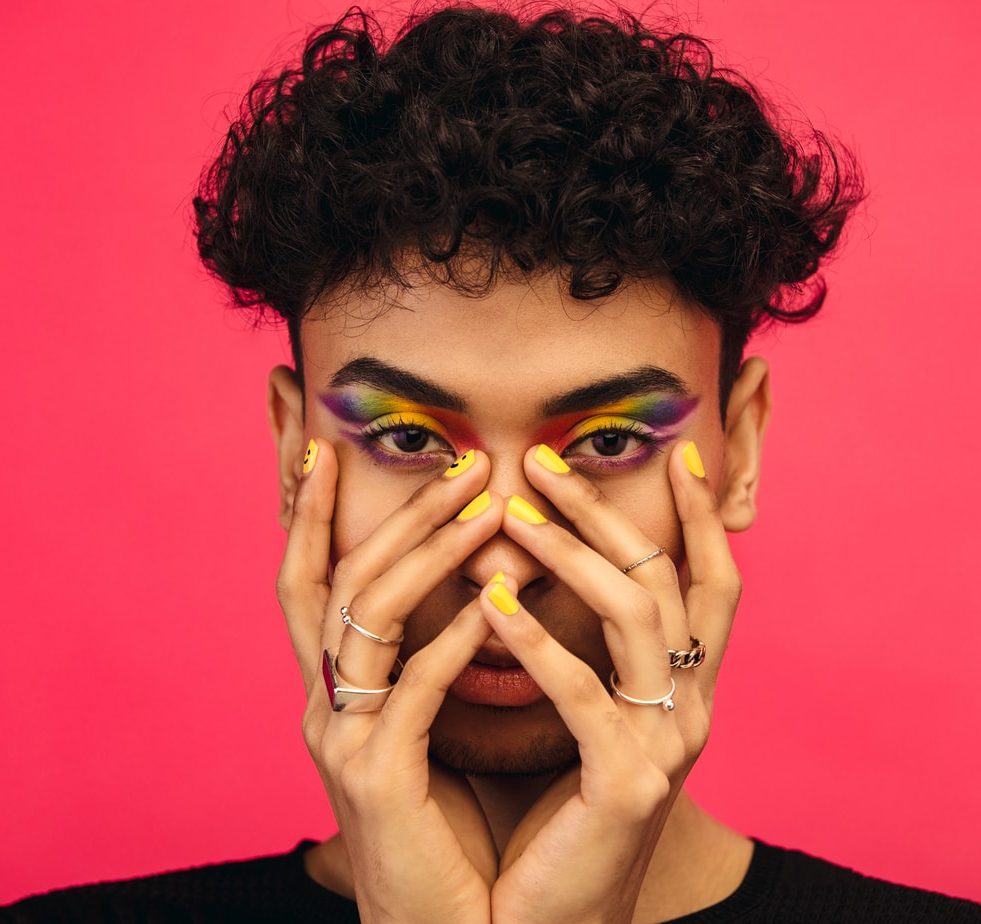What is gender-expansive language?
Gender-expansive language does not assume the gender, sexual orientation, or genitals of its attendees, readers, or audience. Without knowing the identities and orientations of each person, using a majority-wins approach can be alienating to individuals who fall outside of that norm. It is discouraging to folks who are discovering or have yet to explore their own identity or orientation.
Antiquated language not only erases a gender spectrum, but it also reinforces traditional gender roles. If you presume someone will act a certain way this leaves little room for those acting outside of a patriarchal, white centric mindset. Even if you feel your audience is very, very specific, by not acknowledging the breadth of the human experience you are doing a disservice to everyone within the space – including yourself.
Also there is no situation or context when it does not cause harm to assume the type of genitalia someone has. If this is the way you think about bodies, changing and breaking this thought pattern will be of great benefit to you and everyone around you!
Why should we shift or rethink our language, if we’ve already been using heteronormative language?
If the audience is all straight, why do we need to speak to queer people?
If everyone in our space is cisgender, why can’t we say male and female?
But our space is already sex-positive, there’s enough work destigmatising sex to then have to include gender politics.
These are what are commonly known as: excuses.
A cisgender male instructor defended his use of the term “our women” to a group of individuals by asking, “How will heterosexual people know I’m talking to them?”
How will they know? Because we’re always talking to them.
What I mean by that is this:
This unwillingness to use gender-expansive language prioritizes the comfort of certain groups which already have privilege and are consistently afforded comfort. The patriarchy is not cisgender men specifically. It is a system that prioritizes the comfort of cis men, specifically white cis men. Using gender-expansive language is not a disruption to language. It is catering to the comfort and support of all persons, which is a disruption to the current patriarchal system of white cis privilege.
Gender-inclusive language in heteronormative spaces is long overdue. Society, language, privilege have all catered to this, shutting out those who dare to deviate outside of the norm and providing increased access for those contained within said norm. Besides, as straight-identifying film director Marc Parroquin notes, “As long as people are enthusiastic about what they’re doing, it’s hard for it not to be infectious. I think both [heteronormative and queer spaces] have the ability to bring people in, but also have room to grow.”
Remind yourself before slapping on a label of sex-positivity
Being sex-positive is more than just “yay, sex.” It is positive attitudes about sex and feeling comfortable with one’s own sexual identity and/or with the sexual behaviours of others. Denying the existence of those different to you, “othering,” or complaining about the effort necessary to make a space safe for others is inherently sex-negative.
But there are no queer, trans, or non-binary people in this audience!
Firstly, you can’t know that. Not everyone with an identity that is not cisgender or heterosexual has come out or even realised it yet.
Secondly, maybe people of those identities do not feel safe to attend due to the binary language used in communications or other aspects of an event that do not overtly indicate it as a welcoming space to queer or gender diverse community. You may be unintentionally gate-keeping your space from becoming more intersectional and diverse by limiting your language. It’s typically not enough to integrate a few queer folks into your group. BDSM provider and educator Vivenne Vai doesn’t believe a space can be “truly welcoming to queer and trans people if it only has a selection of influences (or appropriations) of queer and trans culture or values.”
Thirdly, it is literally impossible to accurately determine someone’s sexuality or gender based on visual cues like their appearance. Appearance is a dynamic of expression and has no direct correlation to who we are. For more concise information on why this assumption doesn’t work you can refer to this gender expansive education pamphlet www.soyouthink.org
What difference does this shift in language make for trans, non-binary, and queer people versus cisgender heterosexuals?
For those who are cis-het it may feel like less of an impact at first. Maybe it opens their eyes to the world of possibility or makes their ears prick up as they realise they are not the only ones being catered to. Maybe they push back. Perhaps most likely, the only side effect is a mild annoyance that may come in a form of “why do we have to be so politically correct?” “why can’t I just say ‘ladies?” It is a valid reminder: ask yourself – ask your audience – if they can live with a slight annoyance in order to validate, support and uphold the humanity of others.
Language is continuously changing and humans are quite adept at adjusting to it. When someone earns a PhD, we may not be able to tell by looking at them that they are now a Dr. Many individuals change their last names when they marry. Some people prefer a nickname to their given name. Sports teams adjust their names, cities, and even mascots and we adapt to this flawlessly. So why is gender and the language associated such an anomaly to our lexicon?
You don’t know what you don’t know. Not all queer or gender non-conforming people know this about themselves from the moment of birth. It is simply foolish to believe everyone in a certain space will be cisgender and or heterosexual forevermore, especially as we understand our sexuality and gender can be fluid.
How you can start incorporating this language into your vocabulary and at events
Start by replacing words like “men” and “women” with “people” or “person.” Use the term “partner”, “date” or “counterpart” instead of “boyfriend” or “girlfriend.” Do this ALL OF THE TIME unless you are referring to a specific individual and know how they want to be referred to.
Mention your pronouns when meeting someone for the first time or introducing yourself to a group. You can even create an email signature with your pronouns. This is not necessarily about making sure everyone knows your own pronouns. Rather, it’s a small act that will encourage other people to do the same and provide support in making trans, non-binary and queer individuals feel more welcome and safer.
How this language can be considered and incorporated in negotiations
Negotiations, whether in kink or sex, are a time where specificity is important. You can discuss what names, pronouns, or references someone is comfortable with. Instead of assuming what to call them or what to call their genitals and other bits, open a discussion.
Helpful tips when encountering gendered language, what to ask yourself before you speak
When in doubt, assume a wide audience. Think about the effect of the terms you use on your audience. Do the terms imply a judgment? Can you insert examples of different experiences so that you are not only speaking to your own?
When discussing genitals, do not associate them with a certain gender. ‘People who have penises’ or ‘people with vulvas’ works just as well. If you’re speaking to women and non-binary people, say that. If you’re talking about everyone but cisgender men, say that. If you’re talking about people who have penises, this is extremely different from discussing men as men can also have vulvas and a variety of different genital makeups.
If you are speaking about a specific type of sex and are including references to specific types of genitalia – ask yourself why and what purpose does it serve? Upon reviewing the why’s and wherefores of mentioning specific genitals when describing certain sex acts, I’ve often found it to be unnecessary and limiting the scope of what I’m talking about.
But, I’m not used to or good at this kind of language
You may not be an expert at this now, but what are you doing to work on this? Are you making small or conscious efforts to bring awareness to your or others’ use of language? If you can recognize you’re not proficient at something there’s an initial awareness. If you choose to take the route of not addressing your vocabulary that is a conscious choice. We cannot rest on the fact that we are ‘bad’ at something to excuse us from doing the work to make all individuals feel safe to be themselves in a space. Even a heteronormative one.

Lola Jean is a Sex Educator, Mental Health Professional, Wrestler, Pro Domme and World Record Holder for Volume Squirting (solo.) providing the No Frills Sex Education we both need and deserve. Lola brings a refreshing understanding to sex, sexuality and kink to push individuals past what they think they are capable of. There is so much we are not exploring due to fear. Fear of how society will view us. How our partners will view us. How our peers will view us. Lola helps individuals stop making excuses and unlock who they are and what they deserve.

